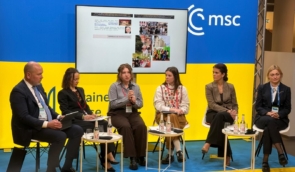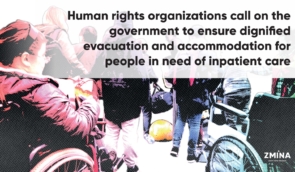Punishment of Ukrainian businesses operating under occupation: opinions of human rights defenders, lawyers and prosecutors
On May 31, in Kyiv, Human Rights Centre ZMINA held a discussion on whether Ukraine is fairly punishing businesses under occupation for collaboration. Since the beginning of the full-scale war, Ukraine has begun to punish those who have a business in the occupation by collaborating with the occupiers. But, in addition to such clear-cut cases, the state also punishes those businesses that help other people in the occupied territories survive (farmers, utilities, etc.), or people who worked as electricians or security guards.
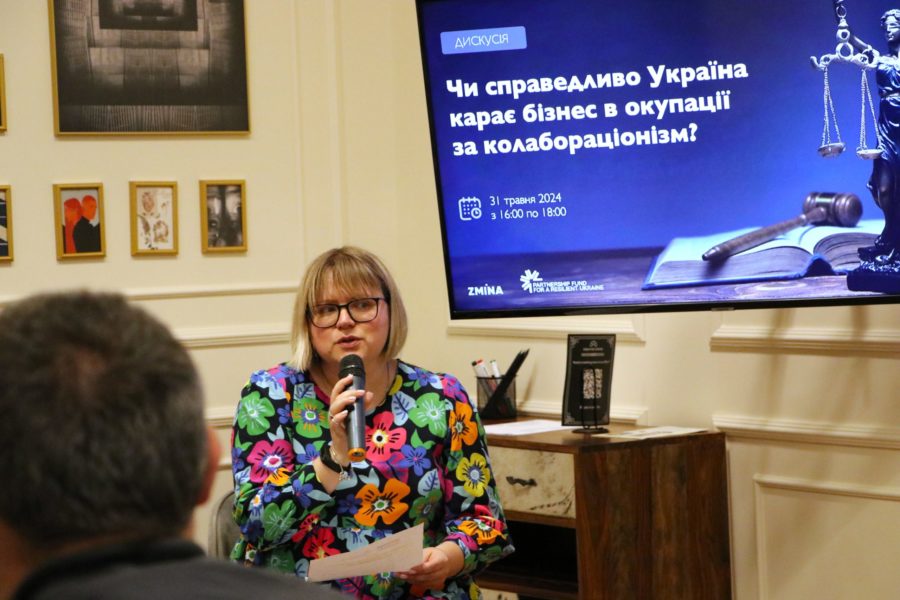 Alena Lunova
Alena LunovaInna Vyshnevska, a researcher at the Research Laboratory of the Lviv State University of Internal Affairs, ZMINA expert, noted that the legislation does not clearly define interaction with the aggressor state, and this interaction is understood to mean a very wide range of actions.
“That is, it can be not only the direct providing of services, carrying out works, the fact of re-registration, obtaining a licence to conduct business activities in accordance with the requirements of the occupation authorities. But also, for example, a simple request for advice on paying taxes under occupation”, says Vyshnevska.
According to her, as of May 3, 2024, 88 guilty verdicts of first instance courts can be found in the Unified State Register of Court Decisions. These include 33 verdicts that convicted people for providing material resources, 51 for conducting economic activity, and four for providing material resources and conducting economic activity. As you can see, more than half of the verdicts relate to the conduct of economic activity in cooperation with the occupation authorities or the Russian Federation.
“One of the verdicts was interesting, when a person provided Internet services and the court noted that, technically, by providing Internet connection, the person could also provide the occupation authorities with Internet”, the expert said.
Vyshnevska notes that, according to the law, no type of economic activity (business) can be conducted in the temporarily occupied territory – only after re-registration of the business in the controlled territory. But at the same time, according to the Geneva Conventions, life in the occupied territories must continue at the same level as before the occupation. That is, people must meet their basic needs in everyday life, healthcare, education, etc., and above all, the level of life must be maintained by the occupying state, which de facto does not do so.
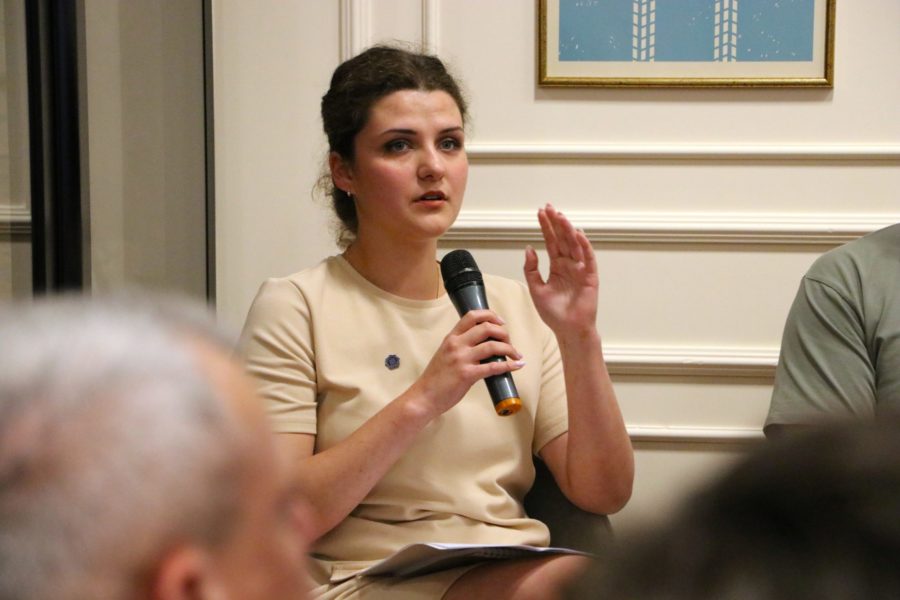
“If the population does not have medicines, food, warm water or electricity, there is a high risk that half of the population will have serious health problems and social consequences. Sooner or later, we will return these temporarily occupied territories and return the people who live there. People in occupation should understand that Ukraine has always supported them and stood with them, and not persecuted them for providing food”, Inna Vyshnevska is convinced.
The advocacy manager of Human Rights Centre ZMINA, Alena Lunova, added that the law banning all economic activity in all occupied territories previously applied to Crimea, which had been occupied for a long time at the time of the law’s adoption and where there were no Ukrainians – legal entities or business entities. And at the time, the government did not think that this rule would apply to other territories that would be occupied after 2022.
According to Oleksandr Zhyla, Deputy Head of the Department of Procedural Management of Pre-trial Investigation and Public Prosecution of the Department for Supervision of Compliance with Laws by Security Bodies of the Prosecutor General’s Office, Geneva law is not imperative for our country, as the priority is the issue of national legislation regulating this procedure. Zhyla also believes that all financial transactions in the occupation related to taxes are interaction with the enemy, as the Cabinet of Ministers has banned all economic operations with the occupied territories and the aggressor state.
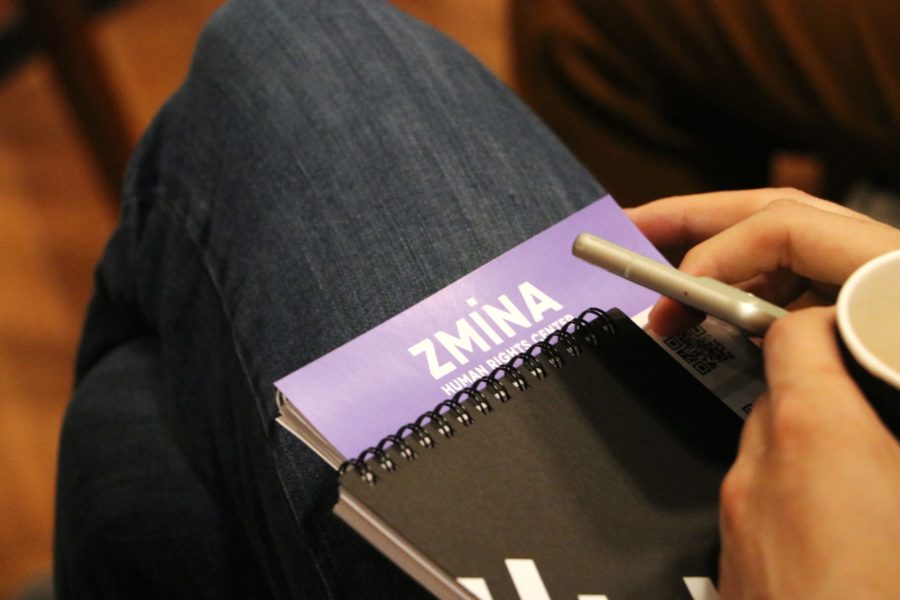
“Most of the problems in determining the need to bring to criminal liability relate to people who provide utility or other services, such as emergency services. These people used to work for the utility companies before the occupation, could not leave for certain reasons and therefore stayed to provide their services and were actually assigned. Situations are different, but we also take into account how consistent a person’s activities were before and after the full-scale invasion”, says Zhyla, adding that if a janitor became the head of a utility company, this is one situation, and if a deputy head could not leave for objective reasons due to their social connections or financial situation, this is another case.
Zhyla also confirmed that court sentences are quite harsh even in such situations, and he sees imperfections in cases due to insufficient evidence.
According to Yehor Rebrov, Head of the Department of the Prosecutor’s Office of the Autonomous Republic of Crimea and the city of Sevastopol, punishment for business in the occupation is important because Russia is interested in cooperating with enterprises in the occupied territories.
“This is an element of colonisation. They create an interest among businesses in their presence in this territory. This is a danger to society in terms of national security”, Rebrov said.
Also, according to the prosecutor, Russia saves money by using the resources of the occupied territories, while its duty is to maintain these territories.
Mykola Miahkov, lawyer, partner at AZONES Law Firm, PhD in Law, noted that people in the occupation can act under physical or psychological coercion.

“It would be appropriate to develop, perhaps, some criteria that would distinguish the issue of psychological coercion in these territories. In the context of business, for example, if a person works to secure their own or their family’s livelihood, perhaps this is one situation. And they are forced, for example, to register their business in the occupied territory in order to secure their livelihood, because otherwise they will have nothing to eat and nothing to feed their family. Another question is if it is no longer about self-sufficiency for oneself and one’s family, but, for example, a person wants to earn money, then there is no question of any extreme need”, says Miahkov.
This event is organised with the support of the Partnership Fund for a Resilient Ukraine, which is funded by the governments of the United Kingdom, Canada, the Netherlands, the United States of America, Finland, Switzerland and Sweden.
If you have found a spelling error, please, notify us by selecting that text and pressing Ctrl+Enter.


